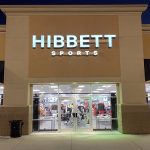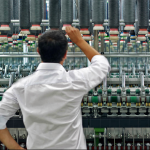The National Operating Committee on Standards for Athletic Equipment (NOCSAE, pronounced “NOXY” by industry insiders) said there is still not enough data to suggest a distinct helmet mass limit for youth or other similar performance changes that would provide more injury protection or would protect against injury risks not already addressed.
The topic came up at NOCSAE's June 12 standards meeting in Chicago, IL, where attendees also discussed an impending deadline for third-party certification of helmets, concussion testing and helmet re-certification.
NOCSAE has been researching the potential benefits of creating a separate standard for helmets designed for youth. At this time, there is insufficient data to suggest a distinct helmet mass limit for youth or other similar performance changes would provide more injury protection or protect against injury risks not already addressed.
NOCSAE's current football helmet standard takes into account the smaller and lower mass characteristics of the youth head by requiring the use of different size and weight headforms for certification testing. The NOCSAE small headform, used to test the small helmets usually worn by youth players, represents the typical head size and mass of an average (50th percentile) 10-year-old male.
There are many factors to consider to ensure that any changes to the standard do not present an increased risk of injury, NOCSAE said in a statement issued June 19. Preliminary pneumatic ram testing indicates that small-sized helmets which have less mass don't perform as well in rotational impact tests as medium or large helmets of the same model. Researchers have suggested that this result is likely due to their lighter weight. As a result of the preliminary pneumatic ram testing, questions remain as to how reducing or limiting helmet mass for youth helmets will affect the player or whether it could lead to an increased risk of concussion or other injuries.
“NOCSAE will not develop a standard without solid science from which we can conclude that taking an action such as limiting helmet mass will not present an increased risk of injury or otherwise prohibit the helmet from effectively addressing rotational acceleration-induced injuries,” said Mike Oliver, NOCSAE executive director.
NOCSAE will continue to support research and development of a youth helmet standard.
Third-Party Certification
This year NOCSAE began requiring manufacturers to contract with Safety Equipment Institute (SEI) to certify their equipment as compliant with NOCSAE standards. Previously, manufacturers were responsible for testing and self-certifying their athletic equipment to NOCSAE standards. The mandatory requirement for third-party certification adds a level of objective certainty and integrity to equipment performance that is above and beyond the requirements of any other sport standards organization.
“SEI is currently working with manufacturers to conduct quality audits and identify any weakness in their systems,” said Oliver. “The goal is consistency in standards performance across certified products, and to ensure manufacturers are held to the same high level of quality and compliance through the entire certification process. What we're seeing is that the industry is ready to work together with NOCSAE and SEI to meet these requirements.”
NOCSAE will stagger its transition to third-party certification through early 2016, based on manufacturers' production seasons for athletic equipment. Baseball and softball equipment will be the first, requiring compliance by the end of August.
Other Standard Developments
Development continues on the proposed football helmet standard revision to include pneumatic ram testing for rotational forces. This would be the first helmet standard to test for rotational forces. The NOCSAE technical director is conducting round-robin testing with several independent laboratories. This testing is a necessary step in refining the testing protocol before the proposed revision can be elevated to final status.
NOCSAE is also exploring whether to link the duration of the new helmet certification to a specific re-certification frequency for helmets. NOCSAE reported on several proposed standards that are open for comment until January 2016. These include proposed standards for field hockey headgear and balls, and revisions to NOCSAE's corrosion testing standard. There has been limited feedback on these standards. They will remain open for public comment until January 2016, at which time they will be eligible to be voted on as final standards unless modifications are recommended. The draft versions of these standards are available for review at www.nocsae.org.
NOCSAE is an independent and non-profit standard-setting body with the sole mission to enhance athletic safety through scientific research and the creation of performance standards for protective equipment. Formed in 1969, NOCSAE is a leading force in the effort to improve athletic equipment and reduce injuries. NOCSAE efforts include the development of performance and test standards for football helmets, gloves and facemasks, baseball and softball batter's and catcher's helmets, baseballs and softballs, ice hockey helmets, soccer shin guards, lacrosse helmets and facemasks and polo helmets. NOCSAE is comprised of a board of directors representing stakeholders from a number of groups, including consumer and end users, equipment manufacturers and reconditioners, athletic trainers, coaches, equipment managers and academic and sports medicine associations. These diverse interests have joined forces in an attempt to arrive at a common goal of reducing sports-related injuries. NOCSAE is a nonprofit, charitable organization supported by individuals and organizations with an interest in athletics.















